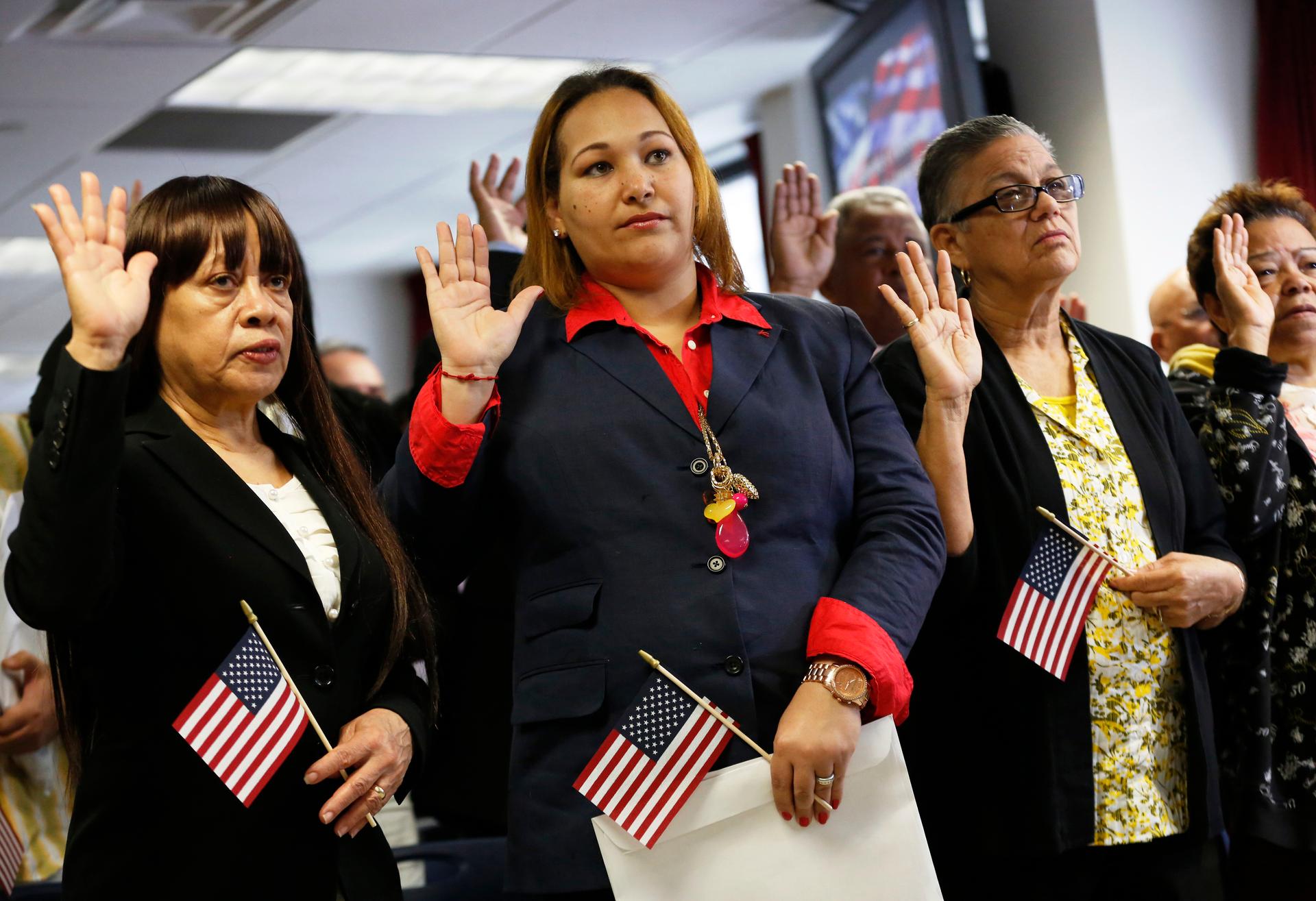What’s the big deal about US citizenship?
Immigrants take the oath of citizenship during a naturalization ceremony in New York.
It takes more than a government shutdown to keep people from becoming new US citizens.
The federal agency that swears in new citizens has mostly stayed open, although it has delayed some naturalization ceremonies. Still, what's a little delay, when so many immigrants have waited so long to gain the benefits of citizenship?
But as thousands of immigrants this year raise their right hands and become citizens, what rights are they actually gaining?
Not many, according to Temple University law professor Peter Spiro. He wrote "Citizenship: American Identity After Globalization," and according to Spiro, the rights and obligations of US citizens today are extremely diluted from what they once were. Well into the mid-20th century, says Spiro, if you didn't have US citizenship, you were shut out of many things.
"There were many professions you were barred from joining; you couldn't become a lawyer; you couldn't become a doctor," says Spiro. "In certain states, you couldn't even own land."
Today, says Spiro, green card holders get everything that citizens get, except for two things, the right to vote and location security – that is, security against being deported.
Is that enough of a draw? Spiro isn't so sure.
"Beyond that locational security and the right to go to the ballot box, there's not that much that citizenship gets you," said Spiro.
And there's evidence that immigrants may agree. Less than 40% of eligible green card holders actually go on to become citizens.
Every day, reporters and producers at The World are hard at work bringing you human-centered news from across the globe. But we can’t do it without you. We need your support to ensure we can continue this work for another year.
Make a gift today, and you’ll help us unlock a matching gift of $67,000!
